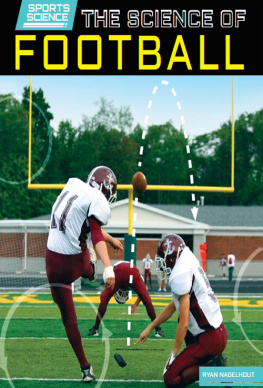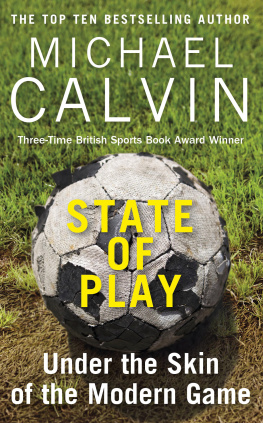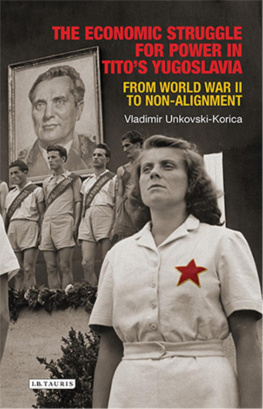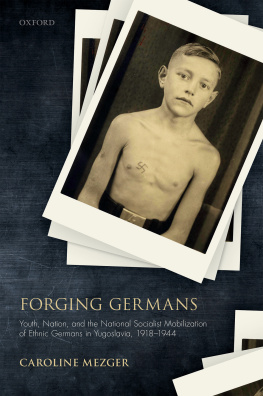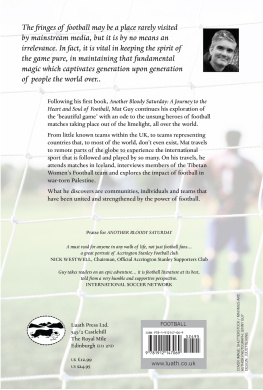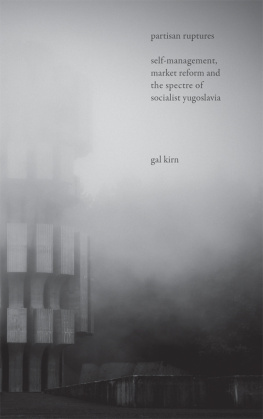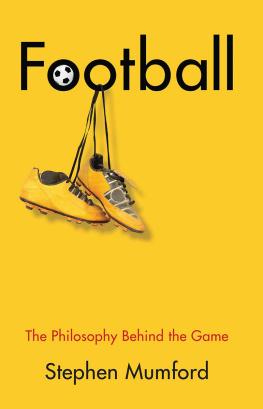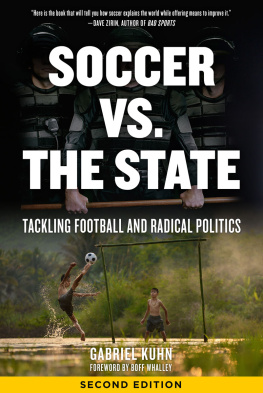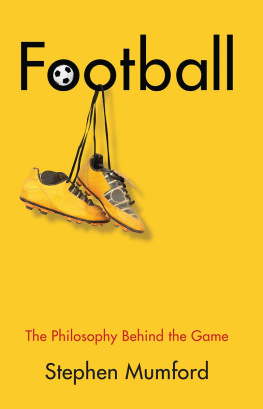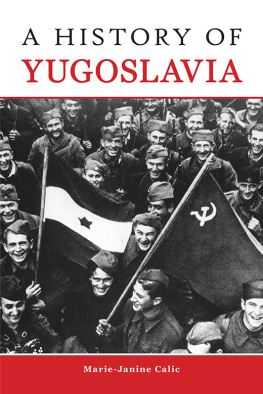
Richard Mills is Lecturer in Modern European History at the University of East Anglia, where he received his PhD. He convenes modules on the Cold War, the history of Yugoslavia and twentieth century sport. Mills has published in peer-reviewed journals, edited collections and the popular football magazine When Saturday Comes. He has guest lectured at the CIES's prestigious FIFA master's programme.
Richard Mills' The Politics of Football in Yugoslavia is everything that a serious work of football history should be. Prodigiously researched, fair-minded in its assessments, and wide-ranging in its themes, Mills work expertly navigates the contested spaces of Yugoslavia's most popular sport. His gripping narrative takes the reader from the foundation of the Kingdom of Yugoslavia after World War I to the bloody collapse of the federal socialist republic more than 70 years later. In the process, Mills shows the extraordinary, and extraordinarily varied, roles that football played in reflecting and shaping modern Yugoslavian history. Through Mills' lucid and nuanced account, we learn of football's role as a propaganda weapon for Tito's Partisans during World War II and as a tool of international diplomacy for the isolated socialist regime after its 1948 split with the Soviet Union. We discover the sport's ultimately ambiguous position under socialism, where it served as a key marker of Yugoslav brotherhood and unity and as an incubator for ethnic identities and nationalist rivalries. And we learn of football's central and tragic role in the wars of the 1990s, as players and supporters signed up to fight on all sides and stadiums were turned into concentration camps and sites for execution. By moving beyond the big clubs in Belgrade and Zagreb, and exploring the very different football cultures of Bosnia & Hercegovina and Slovenia, Mills creates a multi-layered history that accords as much attention to the grassroots as it does to elite competition. His admirable study reminds us that, even when football is placed in the service of politics, it is not easily kept there. The game in Yugoslavia, Mills concludes, was a powerful and unpredictable commodity, a multi-ethnic home to complex forms of identity and belonging. This frequently undermined attempts to make football conform to official narratives, whether communist or nationalist. The Politics of Football in Yugoslavia is an outstanding piece of scholarship: a major contribution to the history of sport and to the history of Yugoslavia.
Alan McDougall, Professor of History, University of Guelph
and author of The People's Game: Football, State, and
Society in East Germany
Richard Mills's much-anticipated history of football in Yugoslavia criss-crosses the Yugoslav region with an unerring eye for the symbolic details that reveal ideology at work. The Politics of Football in Yugoslavia is essential reading for historians of Yugoslav culture and society, following the sport and its teams some legendary and some lesser-known through every phase of the Yugoslav past from unification to disintegration. More than a study of football in Yugoslavia, this is a history of Yugoslavia through football, confidently illustrating how visions of Yugoslavism, Communism and nationalism played out on the pitch, in the boardroom and across the stands.
Catherine Baker, Senior Lecturer in Twentieth Century History,
University of Hull
Mills has produced an original and fascinating book. His focus is on a complex relationship between club football, organised supporter groups and identity in Yugoslavia and the post-Yugoslav lands. The chapters on the interwar and wartime periods set the scene effectively, while adding new and previously little known information. The author has uncovered some previously unused or rarely used sources, such as readers' letters in the former Yugoslav sport press during the socialist period. His analysis of the often mentioned and as often misinterpreted Maksimir Riot, which allegedly kickstarted the Yugoslav Wars of the 1990s is sophisticated and convincing. His description of 1990s wartime football in Serb parts of Croatia and Bosnia-Herzegovina is pioneering. The book is theoretically sound and is sensitive to broader, transnational contexts. Highly recommended.
Dejan Djoki, Professor of History, Goldsmiths,
University of London
Yugoslavia is the missing link in the history of football, as it is in the history of the Cold War. Richard Mills, through the most diligent of research, has told the story of what many have felt was a Third Way. He has chosen a highly original approach to the question. One might have focused on the successes and failures of the national team. Did it bring the disparate nationalities into a shared and ultimately failed endeavour? Instead, Mills looks at the complex and highly various histories of the nation's many clubs. In doing so, he brings to life the game as a tapestry of quotidian experiences football from the ground up without neglecting the efforts of those who ran the sport. This is a story of the people's game in a people's state. Anyone who is interested in the history of the sport will read this book with great profit.
Robert Edelman, Professor of Russian History and the History of
Sport at the University of California, San Diego
Football is etched into the history of Yugoslavia that is how Richard Mills concludes this wonderful book, and that is indeed the case. At every stage in the story of that now former state, football was used to mobilise the masses for political struggle. From Tito's partisan team during World War II, to the Zagreb fans who launched Croatia's independence war, football and political struggle went hand in hand. And Richard Mills captures the ironies of this history brilliantly.
Geoffrey Swain, Professor Emeritus, University of Glasgow
In this brilliant work, Richard Mills shows us that football matters a lot. Indeed the life and death of Yugoslavia were connected to football, one of its major exports. Richard Mills' analysis explores the roots and the effects of nationalism and football passion when they are combined. After reading this fascinating book a reader will understand how and why football and politics were central in Yugoslavia. From Tito to Karadi, the main actors of Yugoslav history were present on the football scene and this book offers a wide, solid and well-written overview of an essential and partially unknown chapter of European twentieth century history.
Pierre Lanfranchi, Professor of History,
De Montfort University and CIES Neuchtel
Mills possesses a nearly encyclopaedic knowledge of Yugoslav football, which he masterfully deploys in describing how sport and politics intertwined throughout the history of Yugoslavia and in the years after its collapse. By situating Yugoslav football firmly within the context of the latest research on Yugoslav history, Mills provides us with a more nuanced understanding of the links between popular culture, sport and politics. The amount of field research and dedication that has gone into this book cannot fail to impress. This book is destined to be the seminal volume on the topic of Yugoslav football and can be read with benefit and pleasure by both lay and expert readers.
Christian Axboe Nielsen, Associate Professor, Aarhus University
An original and well-researched book that will not only be of interest to historians, sports historians and students of the Balkan region, but have a much wider appeal A welcome contribution to the existing literature on the modern history of the Balkans.
Kenneth Morrison, Professor of Modern Southeast
Next page

